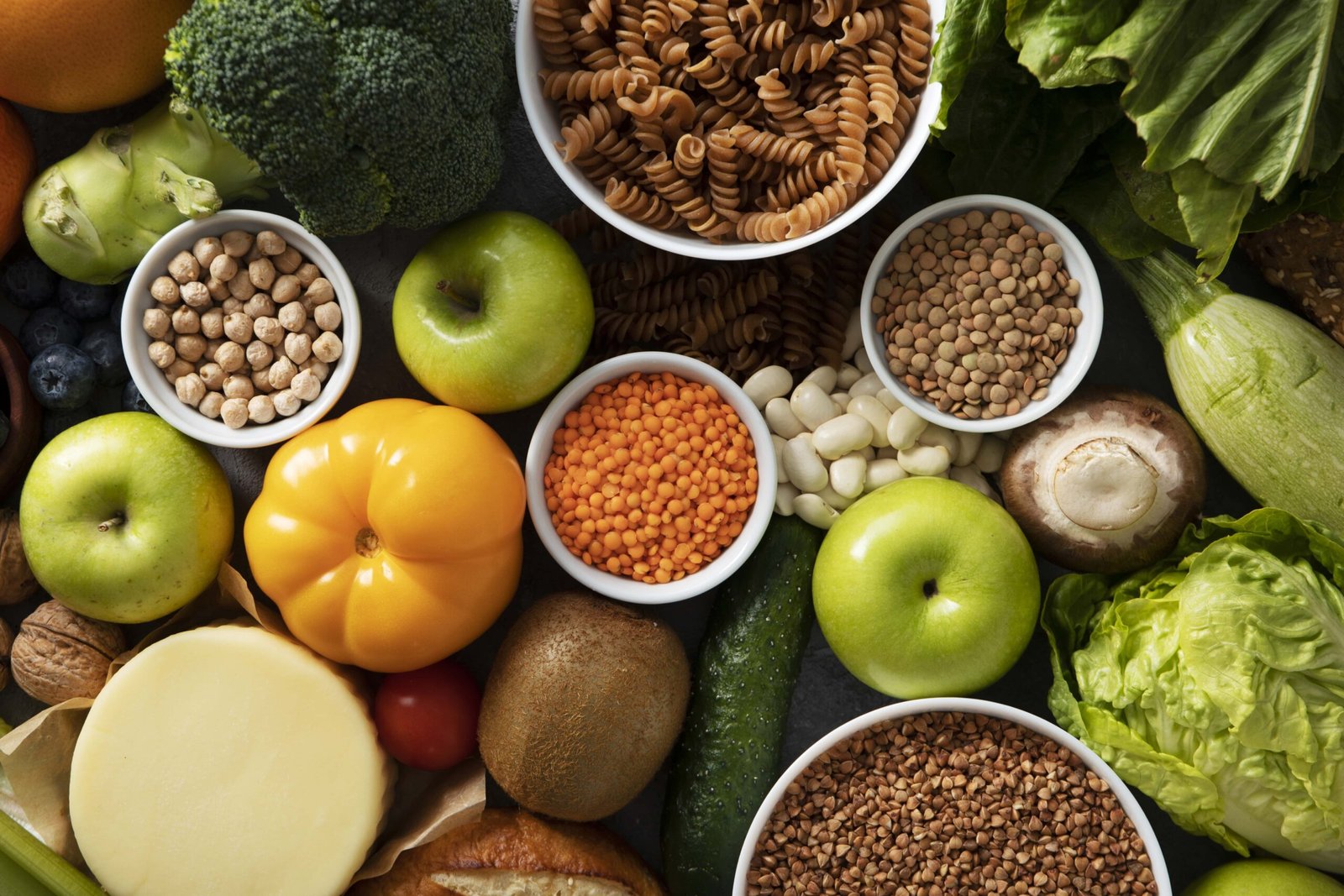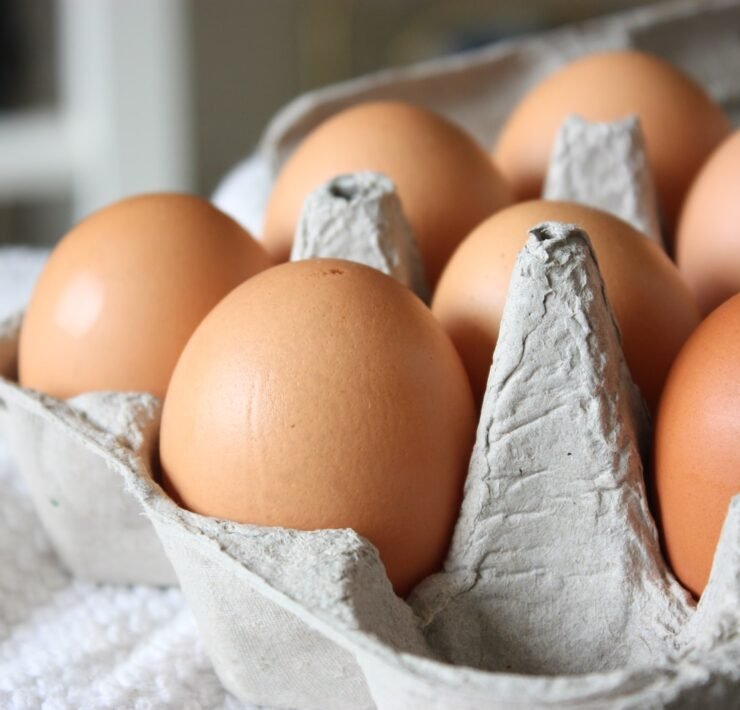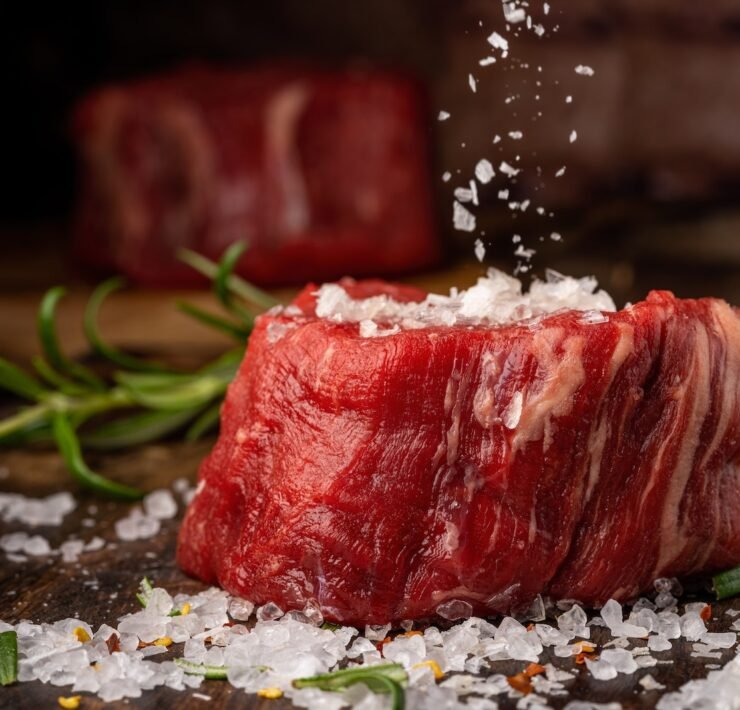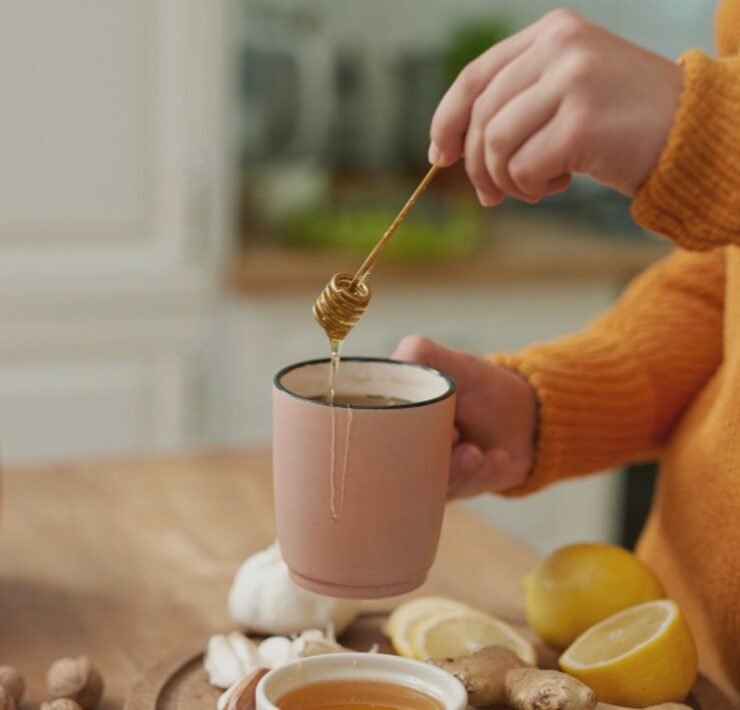Nutrition is essential to maintain a healthy life. Numerous researches and studies confirm the risks associated with excessive consumption of sugars, salt, and fats, while others indicate which foods are preferred and which contribute to our well-being. Discover them, visit the Gallery!
The fundamental role of nutrition
Nutrition is essential to maintain a healthy life. Numerous researches and studies confirm the risks associated with excessive consumption of sugars, salt, and fats, while others indicate which foods are preferred and which contribute to our well-being.
Regarding the risks associated with cancer, remember that one should not rely on any food, however beneficial, but on a healthy, varied diet rich in seasonal and moderate foods. The most significant impact on disease risk is the lack of regular physical activity, alcohol consumption, and smoking.
Find out now what are the sweetest foods for our well-being. Click on the arrows of the photo to continue reading.
Source: © FreepikApple
An apple a day keeps the doctor away, right? Probably its fame as a healthy fruit is because it has very few calories and sugars and the fact that it does not contain proteins or fats. It also offers us a large number of minerals and vitamin B.
Source: © unsplash / Akshay NanavatiOnion
In addition to being essential in every kitchen, the onion activates all the organic functions. They are antibacterial and anti-infective, stimulating the elimination of waste.
Source: © unsplash / Nick FewingsFresh fruit
The benefits of fresh (and seasonal!) fruit are diuretic and detoxifying. It aids digestion, generally containing little fat and a long series of nutritional elements.
Source: © Freepik / KamranAydinovBerries
The benefits that berries reserve for us are extraordinary. Among these stand out the benefits for the heart, the contrast to inflammation, reduced risk of Alzheimer's, supported memory, and limited cholesterol.
Source: © Pexels / Public Domain PicturesStrawberries
Strawberries are rich in vitamin C; five are enough to equal the vitamin C of an orange. They also contain folic acid and potassium, which strengthen the immune system.
Source: © unsplash / Yulia KhlebnikovaLegumes
Thanks to their high satiating power, legumes help fight obesity. They have low caloric and glycemic index and nutrients that counteract cholesterol.
Source: © Pexels / Marina LeonovaLettuce
By reducing tachycardia and hypertension, lettuce is particularly valuable for those who have a cardiovascular system to protect. In addition, it contains large amounts of sodium, phosphorus, potassium, calcium, and iron.
Source: © unsplash / Petr MageraAsparagus
Beloved worldwide, asparagus offers us so much vitamin K and fibers that contribute to regular digestion and strengthen the colon.
Source: © Pixabay / PeggychoucairEggplant
The many fibers that the eggplant contains help digestion and control the cholesterol level in the blood. They are also rich in antioxidants and vitamin B.
Source: © unsplash / Deon BlackDark chocolate
Thanks to the nutrients in cocoa, dark chocolate positively impacts the cardiovascular system, contains antioxidants, and positively affects mood. Therefore, we advise you to often eat a small square at the end of a meal as a dessert, and remember that we are talking about dark chocolate (at least 70%).
Source: © unsplash / Jason LeungCherries
Cherries contain many vitamins C and many other precious nutrients. In particular, they are allies in lowering blood pressure and bad cholesterol. In addition, they have a purifying role and prevent cellular aging.
Source: © unsplash / Quaritsch PhotographyOlive oil
Precious for health, olive oil is central to the Mediterranean diet. It helps reduce bad cholesterol, counteracts cellular aging, hypertension, and diabetes, strengthens the immune system, and aids digestion.
Source: © Pixabay / ServetphotographChili pepper
Spicy eaters can rejoice! Chili pepper positively affects weight control, strengthens the immune system (it also contains vitamin C!), protects eyesight, and gives us many mineral salts by reducing bad cholesterol.
Source: © unsplash / Mufid MajnunRed orange
Blood orange contains infinite nutrients that are good for your health! Fibers, vitamins A, B1, B2, C, K, PP, calcium, folate, and more help us defend the health of the stomach and eyesight and strengthen blood vessels by preventing inflammation, obesity, and diabetes.
Source: © Pixabay / MissSukiGreen tea
Contains large amounts of vitamins C and E, carotenoids, and zinc. Contrasts hypertension and osteoporosis.
Source: © unsplash / Na viskyHerbs
In addition to being invaluable and irreplaceable in the kitchen, aromatic herbs have anti-inflammatory, antioxidant, and antibacterial properties.
Source: © unsplash / Alyson McPheeWhole grains
Unlike refined products, whole grains contain all the grain components, offering fiber, iron, vitamins B and E, antioxidants, proteins, and more. We are therefore talking about products made with barley, wheat, oats, and rye, which help digestive function, prevent diabetes, and keep cholesterol under control.
Source: © Pixabay / FotoshopTofsSpinach
Thanks to the many carotenoids and flavonoids, they fight free radicals and protect the skin, eyes, and cardiovascular system.
Source: © unsplash / Yaroslav ShuraevGrape
The many mineral salts and vitamins in grapes support digestion thanks to a diuretic and antioxidant effect.
Source: © unsplash / Stefano ZoccaSeed oil
Seed oil can be of various types: linseed oil, sunflower, or fennel. These oils are generally rich in Omega 3 and 6 and are recognized for their antioxidant and anti-inflammatory qualities.
Source: © Pexels / RF._.studioChicory
Radish offers us numerous antioxidants that fight free radicals and, therefore, cellular aging and are precious against diabetes and high cholesterol.
Source: © Pixabay / HansGarlic
Rich in antioxidants, it has antibacterial, antiviral, and antifungal action. Garlic lowers blood pressure by reducing tension in blood vessels.
Source: © unsplash / Michele BlackwellPrunes
They contain vitamin A, potassium, calcium, phosphorus, and sodium. In addition, prunes help the digestive phase, increase the immune system, and protect against cholesterol from oxidation.
Source: © unsplash / Joanna DerksRed cabbage
Thanks to the many antioxidants, minerals, and vitamins it contains, red cabbage strengthens the bones and heart, strengthens the immune system, and is also a precious ally for the health of our skin.
Source: © unsplash / Natalie RunnerstromArtichoke
Artichokes offer us antioxidants that counteract free radicals, slowing down aging. In addition, they are diuretics, purifying and aiding digestion.
Source: © unsplash / Martin AdamsCapers
What makes capers so precious? They contain many antioxidants, including quercetin, which has anticancer, antibacterial, and anti-inflammatory properties.
Source: © unsplash / Nico M.Dried fruits
Very rich in vitamins B and E, dried fruit (walnuts, almonds, pistachios, etc.) is also appreciated for its antioxidant properties. It also contains many mineral salts such as calcium, phosphorus, iron, magnesium, copper, and potassium.
Source: © unsplash / Rachel HiskoPersimmon
Containing so much potassium, persimmons are believed to have purifying and diuretic effects. Also containing many fibers, it also has laxative properties. Not to mention its flavor...delicious!
Source: © unsplash / Margaret JaszowskaPurple potatoes
Compared to traditional potatoes, they have a lower glycemic index. They also contain antioxidants and improve blood pressure.
Source: © Pixabay / CouleurWhat's Your Reaction?
Passionate about spirituality, books and cinema, these last 10 years he's been dedicating himself to spreading positive and nourishing contents for the body, mind and spirit. As a good Italian he knows what is good to eat and how to truly live a "dolce vita"!










































